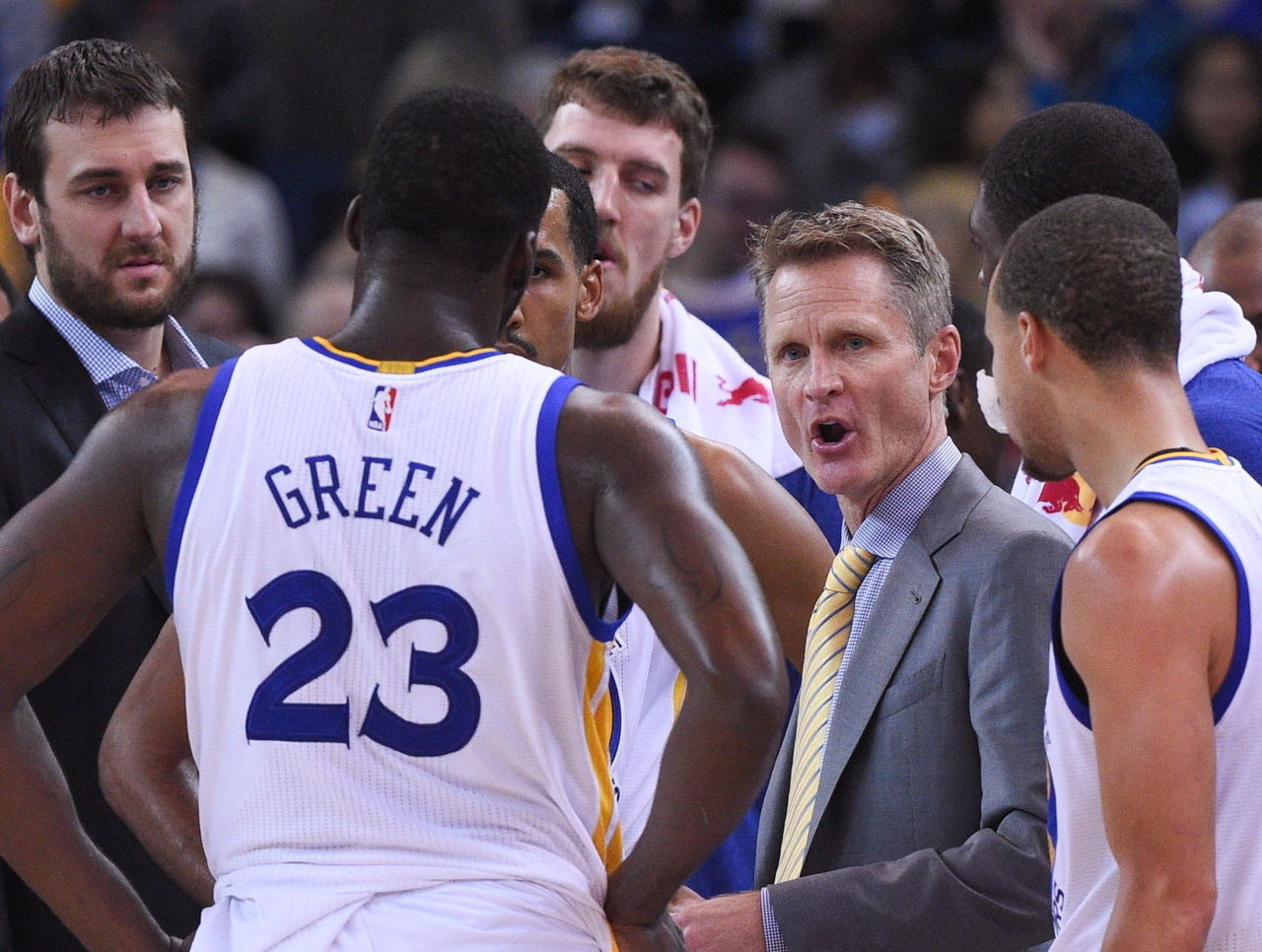Why the historically dominant Warriors should be clear favorites
The Memphis Grizzlies have been the Golden State Warriors' toughest competition atop the Western Conference standings all year.
On Friday, the Warriors demolished the Grizzlies in Memphis, 107-84, to move 9.5 games ahead of their second-place foes.
That's the kind of season it's been in the Bay Area. Even their supposed stiffest competition in one of the most competitive conferences ever is no match.
And yet while fans of the game marvel at the Warriors' aesthetically pleasing play and appreciate their status as the best team in basketball, not nearly enough seem to be appreciating how truly dominant the team has been.
With traditionally successful franchises wallowing near the bottom of the standings and the four-time defending finalist Miami Heat growing accustomed to life without LeBron James, the perception has been that we're watching a season of rare parity, featuring a legitimately wide open title race.
That argument has merits, but in a season that some want to define by parity, the Warriors are running away from the pack like few teams in history have.
With Friday's statement win in Memphis, the Warriors improved their winning percentage to .819, which ranks sixth all-time. For what it's worth, 10 of the 14 teams who've won at least 80 percent of their games went on to win championships.
Friday's victory also boosted the Warriors' average point-differential to a ridiculous 10.9.
That would rank fifth all-time and make the Warriors only the eighth team in history to post a double-digit point-differential over an entire season. Of the previous seven teams to do so, the only one that didn't win a championship was the 1971-72 Milwaukee Bucks, and that's only because they lost in the West Final to the '72 Lakers, whose +12.3 mark is the all-time best.
Then there's the Warriors' almost unprecedented two-way excellence, as they're on track to become the first team since the record-setting (72-win) 1995-96 Chicago Bulls to lead the league in both offensive and defensive rating.
Even the best, most memorable post-Bulls teams can't compare. The 1999-2000 Lakers were a No. 1 offensive unit but No. 4 on defense, the 2007-08 Celtics and their stingy, top-ranked D needed only a 12th-ranked offense on the other end and the 2012-13 Heat boasted a seventh-ranked defense to complement their top-rated O.

When it's all said and done, the 2014-15 Warriors could have the NBA MVP in Stephen Curry, a player up for both Defensive Player of the Year and Most Improved Player in Draymond Green, another DPOY candidate in Andrew Bogut and the Coach of the Year in Steve Kerr.
Klay Thompson, like Curry, has a 2015 All-Star honor to his name, while former All-Stars Andre Iguodala and David Lee come off the bench, with Lee sometimes even falling out of the rotation.
Between their shooting, ball movement and off-ball movement, the Warriors are virtually impossible to keep up with at their league-leading, breakneck pace, and Kerr's smart enough not to slow down come April, May and June just because a bunch of old, talking heads believe you have to.
Throw in likely home-court advantage throughout the playoffs at an arena where the Warriors are 34-2 while outscoring opponents by an average of 15-plus and it's tough to envision anyone beating this team four out of seven times over a two-week span.
Anything from injuries, a team playing over its head or an unfathomable individual performance can derail Golden State's championship aspirations, of course, but the eye test and the numbers bear that this team is as fool-proof as nearly any the NBA has ever seen.
If they emerge triumphant, capturing the Warriors' first title in 40 years, they won't be simply an unlikely champion that rose up in a rare year of parity.
They'll be one of the most historically dominant champions in a league whose history has been defined by them.